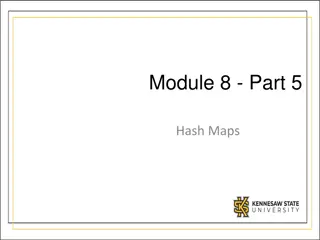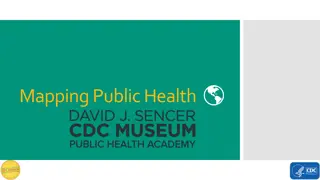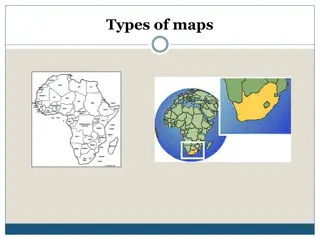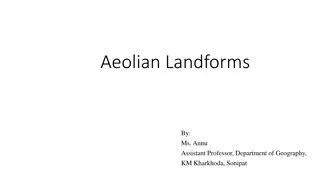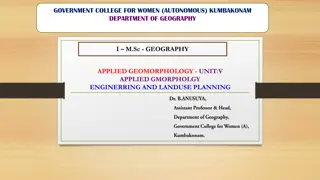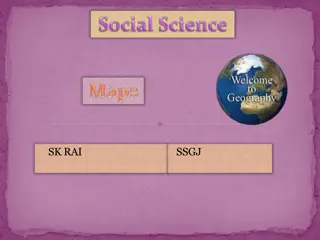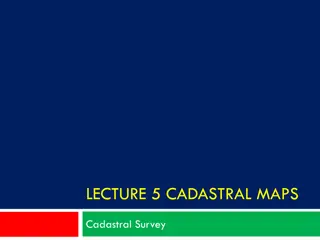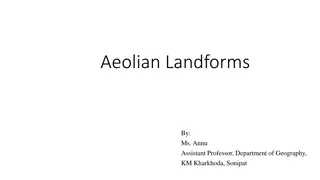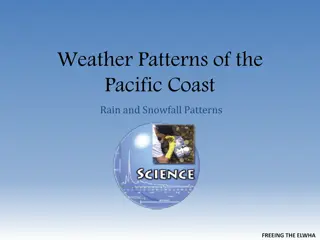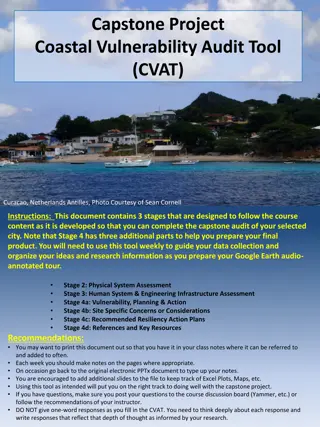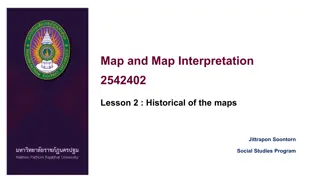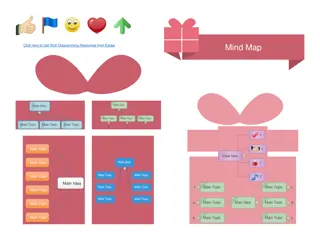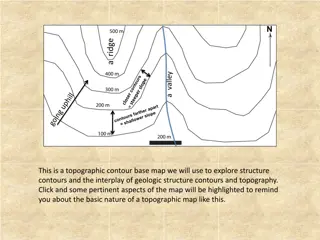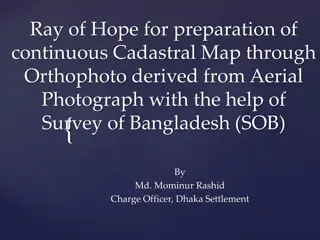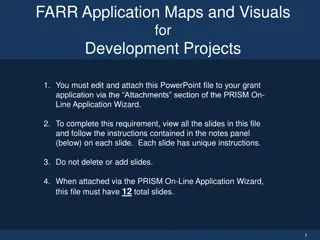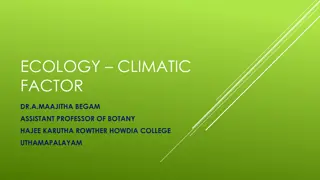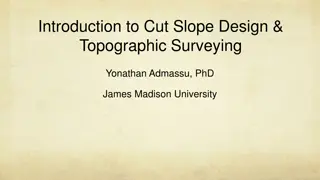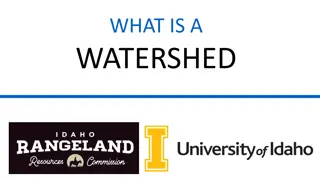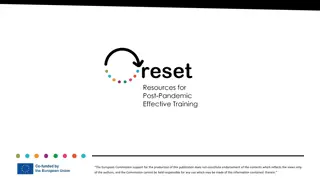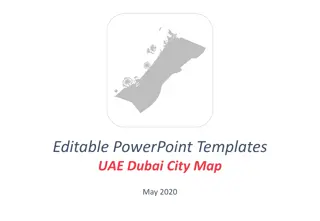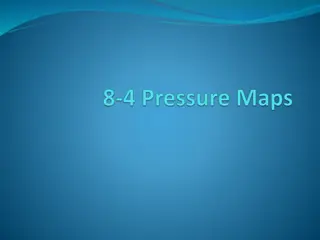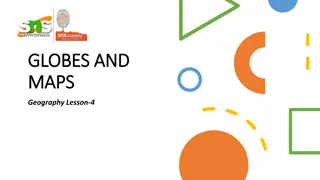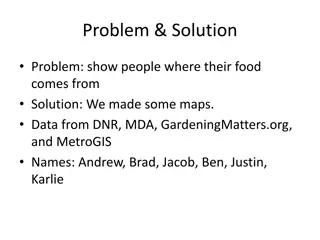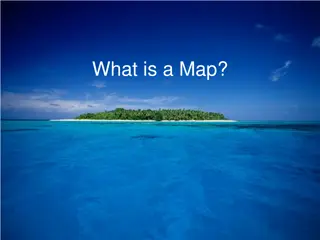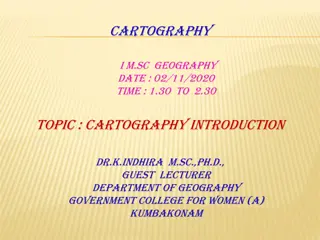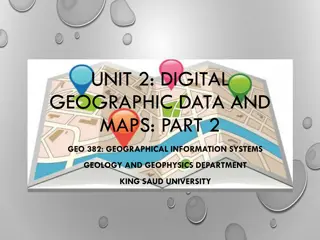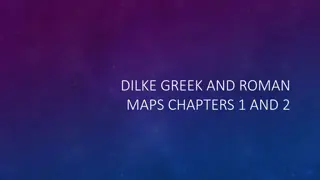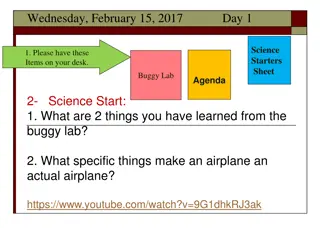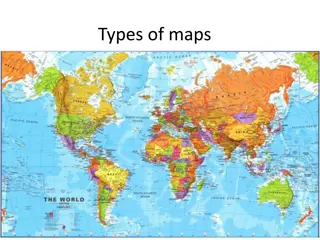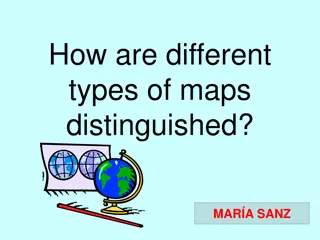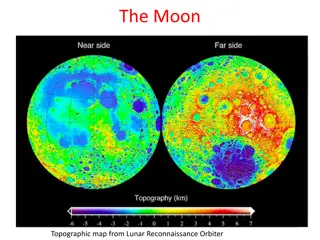Weather Map Interpretation
Weather maps provide data on various weather elements at a specific time. They show isobars, wind direction, cloud cover, rainfall, and more. Weather maps differ from synoptic charts which provide additional detailed information. Analyzing weather maps helps predict weather trends.
6 views • 7 slides
❤Book⚡[PDF]✔ Star Maps: History, Artistry, and Cartography (Springer Praxis Book
\"COPY LINK HERE ; https:\/\/getpdf.readbooks.link\/3030136124\n\n[READ DOWNLOAD] Star Maps: History, Artistry, and Cartography (Springer Praxis Books) | Star Maps: History, Artistry, and Cartography (Springer Praxis Books)\n\"\n
0 views • 6 slides
Hash Maps: A Common Data Structure
In this module, learn about Hash Maps, a common data structure used in various programming languages like Java, C#, C++, Python, and PHP. Hash Maps allow you to store key-value pairs without duplicate keys, making it efficient for mapping relationships between data elements. Explore how to declare,
6 views • 16 slides
How to get free solar panels from the government 2024 in Massachusetts USA ?
NES G or New England Solar and Green Inc. evolved from Guntlow & Associates, Inc. where for almost 30 years we have been providing engineering and design services in the building industry.\nBest Solar Power Panels,G&A was established in 1989 by Vincent Guntlow, a professional civil engineer who is r
4 views • 15 slides
Strategy Maps
Strategy maps provide a visual representation of how organizations can create value by aligning strategic objectives in a cause-and-effect relationship based on the Balanced Scorecard perspectives. They help monitor progress towards strategic goals through objectives, measures, targets, and initiati
0 views • 19 slides
The Use of Maps in Public Health
Maps play a crucial role in public health by visualizing health data, trends, and locations of health events. They are used to communicate information such as disease rates, outbreaks, and causal factors. Spot maps show individual case locations, while area maps use colors or shades to communicate t
0 views • 15 slides
Eight Types of Maps and Their Uses in Tourism
Explore eight different types of maps and how they are utilized in the tourism industry. From general reference maps to political maps, each type serves a specific purpose in providing valuable information to tourists for better navigation and understanding of different areas. Learn about electronic
1 views • 21 slides
Aeolian Landforms: Shaping Earth's Surface Through Wind Action
Geomorphic processes, including aeolian processes, play a significant role in modifying the earth's surface. This article delves into how wind erosion and deposition create unique landforms such as ventifacts and yardangs. Understanding the transportation methods and topographic effects of wind eros
0 views • 22 slides
Engineering Considerations in Applied Geomorphology and Land Use Planning
Engineering works in geomorphology and land use planning involve evaluating geologic factors for projects like road construction in varied terrains such as karst regions, glacial terrains, and areas with considerable relief. Factors like soil composition, drainage, and topographic conditions play cr
2 views • 24 slides
Different Types of Maps and Their Uses
Learn about the advantages and limitations of using a globe versus maps for studying the earth, as well as the various types of maps like Physical, Political, Thematic, Sketch, and Plan maps. Each type serves a specific purpose, from showing natural features to detailed information on cities, towns,
0 views • 11 slides
Cadastral Mapping Components and Data Sources
Cadastral mapping involves geodetic control networks, parcel identification, and various overlays like zoning and floodplains. City maps are categorized into base, derived, and thematic maps. Data sources include spatial and non-spatial data for property assessment. Layers in cadastral maps cover to
1 views • 16 slides
Aeolian Landforms and Processes: A Geographical Study by Ms. Annu
Geomorphic processes are crucial in shaping the Earth's surface, with Aeolian processes driven by wind erosion, transportation, and deposition. This study explores the topographic effects of wind erosion, transportation methods, and the formation of Aeolian landforms like ventifacts and yardangs. Th
0 views • 22 slides
Pacific Coast Weather Patterns: Rain, Snowfall, and More
Discover the intricate weather patterns of the Pacific Coast, including the role of topographic lifting, condensation, rainshadow effect, and precipitation variations in different regions. Explore the dynamics of rain, snowfall, glaciers, and the movement of glaciers in this visually compelling proj
2 views • 13 slides
Coastal Vulnerability Audit Tool (CVAT) for Curacao, Netherlands Antilles
This document outlines the stages of the Coastal Vulnerability Audit Tool (CVAT) for assessing the physical system and human system & engineering infrastructure of Curacao, Netherlands Antilles. It covers key aspects such as coastal setting, climatic and tectonic settings, topographic profile, coast
0 views • 10 slides
Geography Skills Practice for Year 9 Students
Engage in interactive geography skill-building exercises for Year 9 students. Analyze topographic maps, design town layouts, and learn to read scales on graphs. Enhance your knowledge of landforms, vegetation types, distance calculations, and urban planning concepts.
0 views • 31 slides
Evolution of Maps Through History: A Detailed Exploration
Discover the fascinating journey of maps from ancient times to the present day, highlighting the evolution of map-making techniques, the significance of spatial data recording, and the role of maps in shaping geographical understanding across different eras. Explore the transitions in mapping method
0 views • 26 slides
Harnessing the Power of Mind Maps for Enhanced Productivity
Explore the rich resources, benefits, and applications of mind mapping tools like Edraw. From defining mind maps to providing examples in education, learn how to visualize, organize, and boost creativity through effective diagramming. Discover rules, tips, and techniques for creating impactful mind
0 views • 11 slides
Topographic Contour Maps for Geologic Exploration
A topographic contour base map is a valuable tool for exploring geologic structures and their interplay with topography. By analyzing strike angles, parallel lines, and structure contours, one can determine the orientation, strike, and dip of geologic features. This information can be used to map ou
0 views • 4 slides
High-Tech Survey Methods for Continuous Cadastral Map Generation
Generation of cadastral maps through advanced survey techniques using ortho-images, DGPS/GNSS, and ETS. The process involves obtaining boundary vectors from ortho-images, surveying obscured areas with DGPS/GNSS and ETS, and integrating datasets in a GIS environment. The objective is to create contin
0 views • 14 slides
Enhancing Geology Education Through Teaching Assistantship
This project utilizes teaching assistants in a community college geology classroom to improve student understanding and retention. Teaching assistants assist in lab activities, lead field trips, and provide tutoring, resulting in enhanced learning outcomes for students like Jeremy, Kristie, and Rand
0 views • 19 slides
Grant Application Maps and Visuals for Development Projects
This PowerPoint file contains maps and visual representations essential for a grant application. It includes location maps, facility layouts, site plans, and floor plans among other visuals to enhance the understanding of the proposed development project.
0 views • 12 slides
Ecological Factors and Climatic Influences on Plant Life
Ecological factors play a crucial role in shaping the environment for organisms to thrive. This includes living (biotic) and non-living (abiotic) components like climatic factors, edaphic factors, topographic factors, and biotic factors. Climatic factors such as light, temperature, water, wind, and
0 views • 14 slides
Cut Slope Design and Topographic Surveying
Geotechnical engineers and engineering geologists play crucial roles in designing earth structures based on geological data. This involves assessing and forecasting hazards, making slope design recommendations, and more. The process includes topographic surveys, rock mass characterization, photogram
0 views • 11 slides
Topographic Maps and Watersheds
Exploring the concept of watersheds and learning how to read topographic maps through questions and diagrams. Understand the elevation, steepness, and heights of hills A and B. Enhance knowledge on contour lines and their significance in identifying terrain features. Practical exercises for better c
0 views • 5 slides
Mind Maps: Classroom Management and Learning Outcomes
Explore the concept of mind maps in virtual classrooms, learn about their features and applications, and understand the differences between mind maps and concept maps. Discover how to keep the audience engaged, gather ideas effectively, and enhance professional engagement. The European Commission do
0 views • 42 slides
Comprehensive Collection of Dubai City Maps for May 2020
Explore a diverse range of Dubai city maps including editable PowerPoint templates, outline maps, sector maps, maps with sectors and districts, as well as blank framed maps. These maps cover various sectors and districts of Dubai, providing detailed insights and information for a comprehensive under
0 views • 19 slides
Air Pressure Through Pressure Maps
Explore the significance of air pressure in understanding weather patterns through pressure maps. Learn to interpret isobars, identify high and low pressure areas, analyze isobar intervals, and understand how air flows from high to low pressure areas. Enhance your meteorological knowledge and grasp
0 views • 6 slides
Insights from Yale Climate Opinion Maps 2021
Explore key findings from the Yale Climate Opinion Maps 2021, revealing percentages of adults' beliefs on global warming, future impacts, discussions, and opinions on actions needed to address climate change. The maps depict varying views on global warming awareness, personal concerns, governmental
0 views • 16 slides
Geography: Maps, Globes, and Map Scales
Explore the world of geography through maps and globes in this informative lesson. Discover the advantages and disadvantages of using globes and maps, learn about different types of maps, and understand the importance of measuring distance and map scales. Dive into the realm of conventional signs an
0 views • 13 slides
Minnesota's Food Sources Through Interactive Maps
Discover where your food comes from in Minnesota through interactive maps created using data from various organizations. From wild rice in the wild to community gardens and farmers markets, these maps showcase the diverse sources of food in the state. Explore the green community gardens and yellow f
0 views • 6 slides
Essential Rules and Tips for Creating Quality Maps
Understanding what a map is, the rules of mapping, key features that should be included on maps (BOLTS), and essential tips for creating tasteful and easy-to-read maps. Guidelines include labeling in pencil first, horizontal labeling for human features, following natural directions for physical feat
0 views • 14 slides
Cartography: The Art and Science of Mapmaking
Cartography, or mapmaking, entails the study and practice of creating maps by combining scientific and artistic elements. Cartographers play a vital role in researching, designing, and manipulating data to produce various types of maps, such as political, physical, and topographic maps. Understandin
1 views • 9 slides
Introduction to Digital Geographic Data and Maps in GIS
Understanding digital maps and GIS involves recognizing their dynamic nature and the role of computing technology. Digital maps offer flexibility and scalability unlike traditional hardcopy maps. This introduction delves into the fundamental concepts of digital maps, emphasizing the storage of data
0 views • 35 slides
Ancient Maps and Alignments: A Journey Through History
Explore a collection of ancient maps and alignments, from Sumerian maps dating back to 1500 B.C. to the precise compass orientation of the Great Pyramid of Giza. Delve into the mysteries of the underworld as painted on an Egyptian coffin from 2000 B.C. Witness the evolution of cartography with the f
0 views • 6 slides
Science Starters for Motion Maps and Buggy Lab Agenda
Explore the world of motion maps and delve into the concepts of velocity and direction with engaging activities such as the Buggy Lab. Discover how to interpret motion maps and analyze different types of motion patterns. Enhance your understanding of physics with hands-on experiments and interactive
0 views • 11 slides
Different Types of Maps and Their Uses
Learn about various types of maps such as thematic, choropleth, isopleth, raised relief, topographic, political, contour-line, natural resource, military, bird's-eye view, artifact, satellite photograph, pictograph, and weather maps. Understand how to read maps and the significance of thematic maps
0 views • 15 slides
Various Types of Maps
Political maps use colors and symbols to represent countries, regions, and physical features. Physical maps highlight natural patterns and features like vegetation and mountains. Climate maps depict weather patterns, and land use maps show how land is utilized. Contour maps display elevation through
0 views • 18 slides
The Moon: Topographic Features and Formation
The moon, with a radius 0.27 of Earth, orbits the Earth every 27.3 days and is tidally locked with one face always pointing towards Earth. It has a composition similar to Earth's rocks and likely formed from a giant impact. The moon's surface features craters and dark patches called maria, while the
0 views • 13 slides
Comprehensive Guide to Implementing Google Maps API V2 in Android App Development
Learn how to integrate Google Maps API V2 into your Android app with detailed instructions on obtaining keys, setting up permissions, and handling layouts efficiently. Keep up with the latest updates and best practices to seamlessly integrate Maps V2 into your projects.
0 views • 41 slides
Zonal Momentum Balance in the Antarctic Circumpolar Current
This study investigates the zonal momentum balance of the Antarctic Circumpolar Current (ACC) by analyzing the interplay between wind stress, topographic form stress, and eddy dynamics. The research explores the maintenance and adjustment of momentum balance in the ACC, emphasizing the roles of baro
0 views • 10 slides

![❤Book⚡[PDF]✔ Star Maps: History, Artistry, and Cartography (Springer Praxis Book](/thumb/21625/book-pdf-star-maps-history-artistry-and-cartography-springer-praxis-book.jpg)
